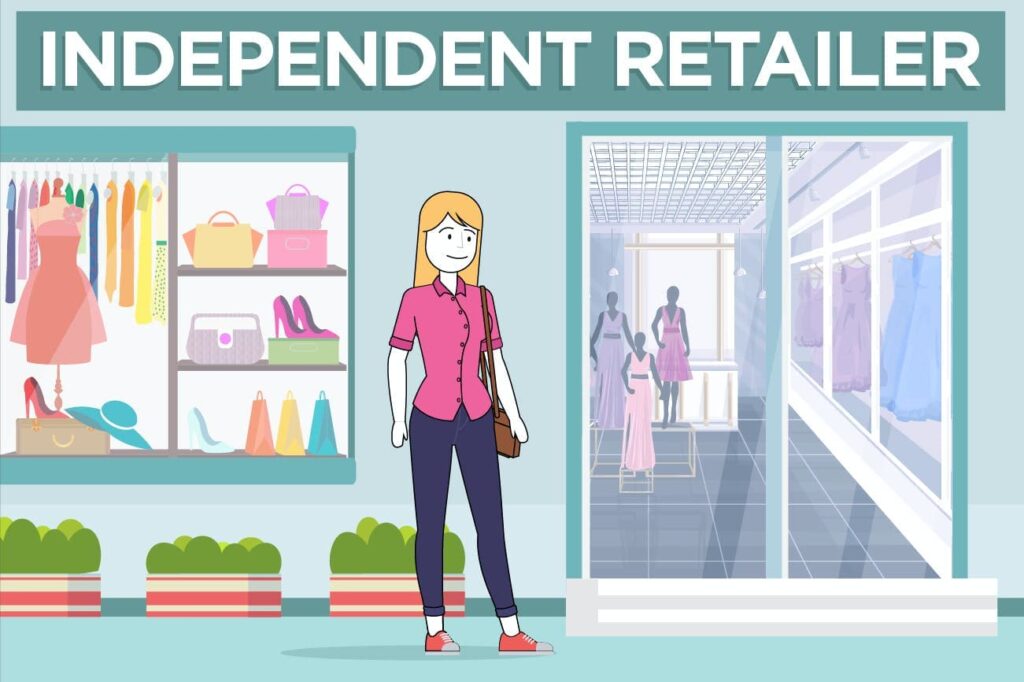I’ve just come back from three days in Sydney at the gift, homewares, jewelry, and fashion trade shows and have much to report.
The general sentiment from distributors and manufacturers towards online retail stores is slowly changing and it’s now leaning more towards one of reluctant acceptance, rather than absolute refusal. Air punch! I’ve been deeply dismayed for years at the point-blank rejection of online shops by some brands as if we’re their poor cousin. They refused to sell to us unless we had a physical shopfront.
Doesn’t it matter that we’re all doing the same thing, buying and selling, following Recommended Retail Prices (RRP)? They can pick and choose the best retail companies to do business with, and stock is paid for prior to dispatch. So what’s the problem?
The problem is competition. Physical stores fear the competition that this new digital rival brings.
I said that the ‘general’ sentiment was changing; well I have a pearler for you. I was at the Life Instyle trade show, and I excitedly approached the booth of a Brisbane lady’s clothing brand. No one else was there, just her and I. I said how much I liked her range and asked to place an order. She had viewed my lanyard from a distance and, based on the importance of how she ranked my visit, she had already sat down and began to tap out a text. I couldn’t even get eye contact with her. She barked at me (still without looking at me) that they weren’t going to sell to online stores, that online stores were not where they saw themselves going, that they weren’t what they wanted to be associated with.
I quizzed her further and said that seemed to be a rather archaic viewpoint. I said that I stocked some extremely reputable international and local brands and that business was going strong. I rattled off a few of the brands I represented and she screeched, “That’s one of the main ones we’ve had a complaint about! That brand has its own online store, and they also sell to some online stores. A retailer who owns a normal shop told us they’re all undercutting her price, so she’s not stocking that brand anymore.“ And there, ladies and gentlemen, we have it in a nutshell.
There is no legal and binding law that says that a product must follow a given recommended retail price, although I do follow it religiously. I follow what the manufacturer/distributor dictates are the cheapest price they want their products to be sold at. But you don’t have to do this, and many stores don’t. When you buy something from a distributor, retailers are usually told that their markup is up to them, but it could be anywhere from ‘x’s to ‘y’. The manufacturer and the online store sold the dresses at the cheapest end of the RRP scale, not the expensive one that the physical store owner chose to sell at. And therein lies the real issue behind this vicious rumor: competition.
Well, guess what? It’s time that bricks and mortar retailers got over themselves, stopped whinging about the new kid on the block, pulled their fingers out, and had a look at their business model to find where they can improve their own operations.
When I related the above dress story to a successful physical retailer she winced and said, “Well yes, they’re like that because your online stores have no overheads.”
We don’t? You must be joking? So my $30,000 website was a gift from my web developer, was it? Does someone else pay my wages, super, electricity, phone, and insurance? Does someone else pay the mortgage (which equates to rent) on my house that we bought to be large enough to fit a home business and us? Do they have any idea how labor intensive running an online store is, how much time it takes to photograph and create product pages, and manually key in orders and pack them? The content management side of things in itself is massive and there are eternal glitches with websites that need to be fixed by people who cost upwards of $150 an hour. And that doesn’t even take into account how you are going to get customers to your site, and how you’re going to convert a sale if you’re going to convert a sale!
Anyone who thinks that online retailing is a walk in the park is kidding themselves by conveniently remaining ignorant enough to demonize their competition.
The Sydney Morning Herald recently ran an interesting article by Jason Steger, entitled, ‘Borders demise not just down to the net, say booksellers’. It discussed REDgroup, the owner of Angus & Robertson and Borders, who recently went into voluntary administration. REDgroup offered online retail and protectionism as the reason for their downfall. Funnily enough, a number of traditional booksellers have questioned this explanation. They’ve come out instead slamming the management of the company and their basic business principles – appalling customer service and a poor range of books. It was also mentioned that Australian book publishers have been slow to adjust pricing as the dollar strengthened, thus making it very difficult to compete with online stores from abroad, especially America, whose publishers were quick to respond to pricing adjustments. So, it would seem, that here’s yet another case of an inaccurate blame game.
Quite frankly, I am grateful to Gerry Harvey and Myer for throwing their toys and having a tantrum in the much-publicized campaign regarding the impact of online retail on physical stores in December. (And, by the way, we all had a difficult October/ November last year). It has only brought the topic of online shopping further into the mainstream realm, and more worthy of investigation by an economically strapped consumer. My business has been booming since Gerry’s anti-online campaign.
With so much mud-slinging and so much responsibility being assigned to online shopping for poor traditional retail sales, it makes you wonder how much more this is going to accelerate the uptake of online shopping in Australia, as the consumer investigates what all the fuss is about.
Janet E. Leach is an entrepreneur and owner/director of Artery Store.





